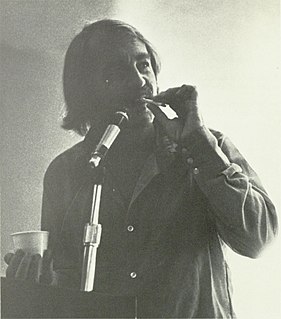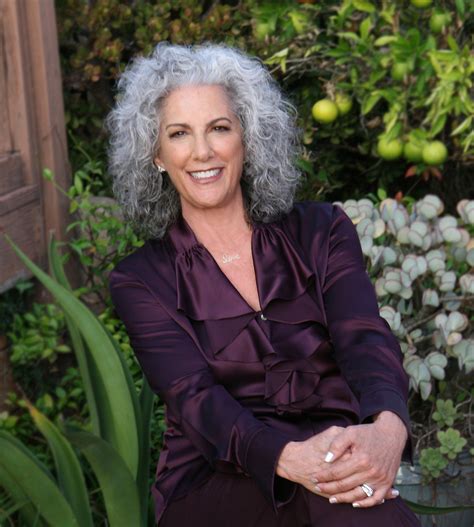A Quote by John Welwood
A relationship that has any depth and power at all will inevitably penetrate our usual shield of defenses, exposing our most tender and sensitive spots, and leaving us feeling vulnerable - literally, 'able to be wounded.' To love, in this sense, is to open ourselves to being hurt. The dream of love would have us believe that something is wrong if a relationship causes us pain. Yet trying to avoid the wound of love only creates a more permanent kind of damage. It prevents us from opening ourselves fully, and this keeps us from ever forming a deeply satisfying intimate connection.
Quote Topics
Able
Any
Avoid
Being
Being Hurt
Believe
Causes
Connection
Creates
Damage
Deeply
Depth
Dream
Ever
Exposing
Feeling
Forming
Fully
Hurt
Inevitably
Intimate
Keeps
Kind
Leaving
Literally
Love
More
Most
Only
Open
Opening
Our
Ourselves
Pain
Penetrate
Permanent
Power
Prevents
Relationship
Satisfying
Sense
Sensitive
Shield
Something
Spots
Tender
To Love
Trying
Us
Usual
Vulnerable
Will
Would
Wound
Wounded
Wrong
Related Quotes
We believe we are hurt when we don't receive love. But that is not what hurts us. Our pain comes when we do not give love. We were born to love. You might say that we are divinely created love machines. We function most powerfully when we are giving love. The world has led us to believe that our wellbeing is dependent on other people loving us. But this is kind of upside down thinking that has caused so many of our problems. The truth is our well being is dependent on our giving love. It is not about what comes back; it is about what goes out!
Some of us have a hard time believing that we are actually able to face our own pain. We have convinced ourselves that our pain is too deep, too frightening, something to avoid at all costs. Yet if we finally allow ourselves to feel the depth of that sadness and gently let it break our hearts, we may come to feel a great freedom, a genuine sense of release and peace, because we have finally stopped running away from ourselves and from the pain that lives within us.
One of the primary conditions for suffering is denial. Shutting our mind to pain, whether in ourselves or others, only ensures that it will continue. We must have the strength to face it without turning away. By opening to the pain we see around us with wisdom and compassion, we start to experience the intimate connection of our relationship with all beings.
God’s love sets us free from the need to seek approval. Knowing that we are loved by God, accepted by God, approved by God, and that we are new creations in Christ empowers us to reject self-rejection and embrace a healthy self-love. Being secure in God’s love for us, our love for Him, and our love for ourselves, prepares us to fulfill the second greatest commandment: To love our neighbor as ourselves.
We think that by protecting ourselves from suffering, we are being kind to ourselves. The truth is we only become more fearful, more hardened and more alienated. We experience ourselves as being separate from the whole. This separateness becomes like a prison for us - a prison that restricts us to our personal hopes and fears, and to caring only for the people nearest to us. Curiously enough, if we primarily try to shield ourselves from discomfort, we suffer. Yet, when we don't close off, when we let our hearts break, we discover our kinship with all beings.
We searchers are ambitious only for life itself, for everything beautiful it can provide. Most of all we love and want to be loved. We want to live in a relationship that will not impede our wandering, nor prevent our search, nor lock us in prison walls; that will take us for what little we have to give. We do not want to prove ourselves to another or compete for love.
The kind of love that God has for us, I think, is of an infinite longing for union, and the kind of love that God wants us to have for him, I think, is of this also endless longing. Now in eros we lose ourselves. I think erotic love transforms us, but it does so only momentarily. It has to be embedded in something much longer, a much bigger narrative called marriage or durable relationship or something like that.
After a few (or many) bad relationships, its so easy to shut down, give up, and stop believing that the right person is out there for us. Our hearts yearn to fall in love, but our minds insist its not possible, and we enter into a tug-of-war with ourselves. Its as if one part of us is screaming, Yes! I deserve a great relationship! while another part insists, Ill never find him or her. When our beliefs contradict our desires, we experience an inner conflict that not only paralyzes us, but can actually prevent us from recognizing the possibilities for love that exist all around us.
We will continue our journey to our destination of peace and education. No one can stop us. We will speak up for our rights and we will bring change to our voice. We believe in the power and the strength of our words. Our words can change the whole world because we are all together, united for the cause of education. And if we want to achieve our goal, then let us empower ourselves with the weapon of knowledge and let us shield ourselves with unity and togetherness.
Intimacy requires courage because risk is inescapable. We cannot know at the outset how the relationship will affect us. Like a chemical mixture, if one of us is changed, both of us will be. Will we grow in self-actualization, or will it destroy us? The one thing we can be certain of is that if we let ourselves fully into the relationship for good or evil, we will not come out unaffected.
The mystery of the spiritual life is that Jesus desires to meet us in the seclusion of our own heart, to make his love known to us there, to free us from our fears, and to make our own deepest self known to us Each time you let the love of God penetrate deeper into your heart it leads to a love of ourselves that enables us to give whole-hearted love to our fellow human beings. In the seclusion of our hearts we learn to know the hidden presence of God; and with that spiritual knowledge we can lead a loving life.


































